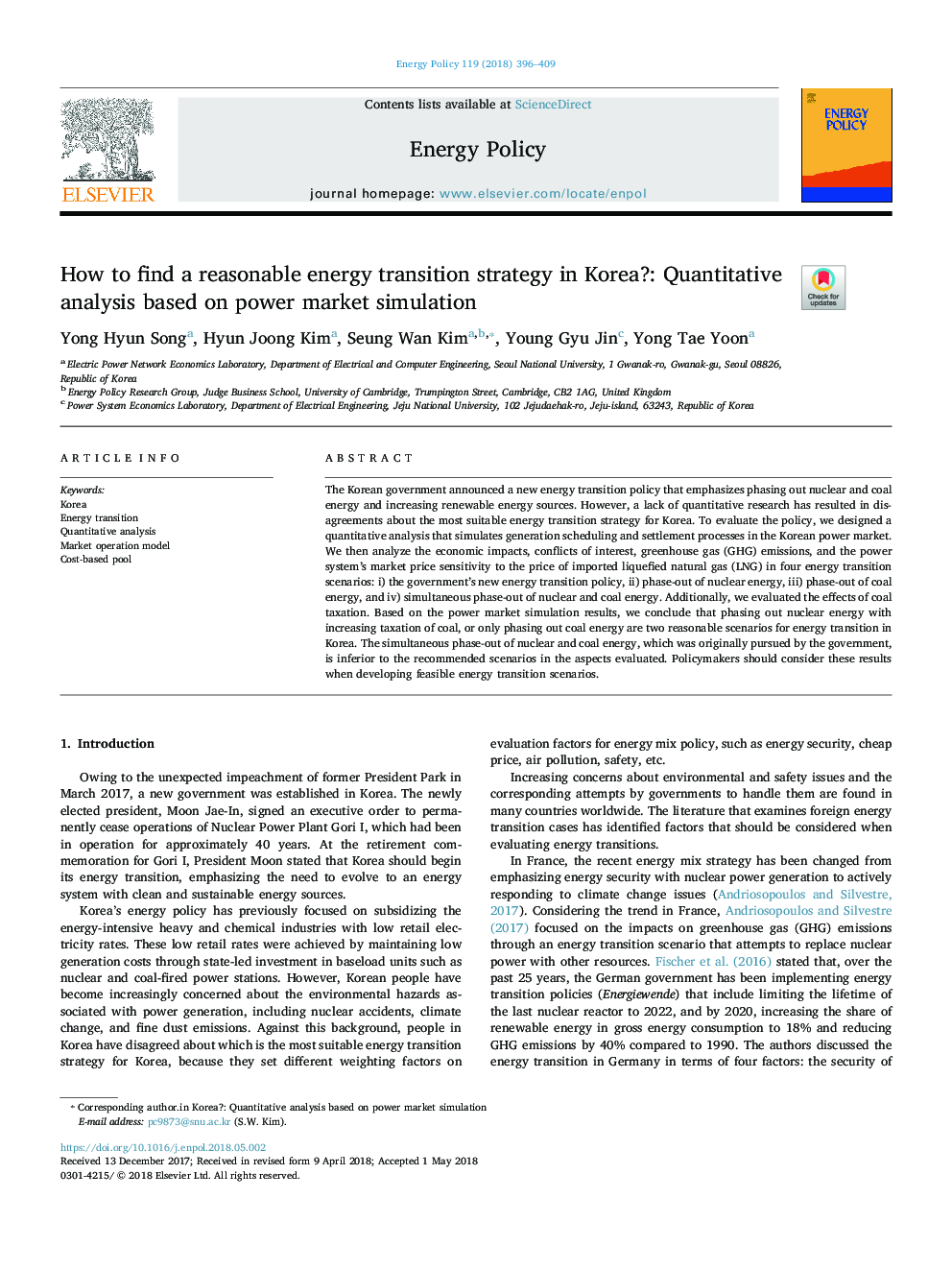| Article ID | Journal | Published Year | Pages | File Type |
|---|---|---|---|---|
| 7396911 | Energy Policy | 2018 | 14 Pages |
Abstract
The Korean government announced a new energy transition policy that emphasizes phasing out nuclear and coal energy and increasing renewable energy sources. However, a lack of quantitative research has resulted in disagreements about the most suitable energy transition strategy for Korea. To evaluate the policy, we designed a quantitative analysis that simulates generation scheduling and settlement processes in the Korean power market. We then analyze the economic impacts, conflicts of interest, greenhouse gas (GHG) emissions, and the power system's market price sensitivity to the price of imported liquefied natural gas (LNG) in four energy transition scenarios: i) the government's new energy transition policy, ii) phase-out of nuclear energy, iii) phase-out of coal energy, and iv) simultaneous phase-out of nuclear and coal energy. Additionally, we evaluated the effects of coal taxation. Based on the power market simulation results, we conclude that phasing out nuclear energy with increasing taxation of coal, or only phasing out coal energy are two reasonable scenarios for energy transition in Korea. The simultaneous phase-out of nuclear and coal energy, which was originally pursued by the government, is inferior to the recommended scenarios in the aspects evaluated. Policymakers should consider these results when developing feasible energy transition scenarios.
Related Topics
Physical Sciences and Engineering
Energy
Energy Engineering and Power Technology
Authors
Yong Hyun Song, Hyun Joong Kim, Seung Wan Kim, Young Gyu Jin, Yong Tae Yoon,
